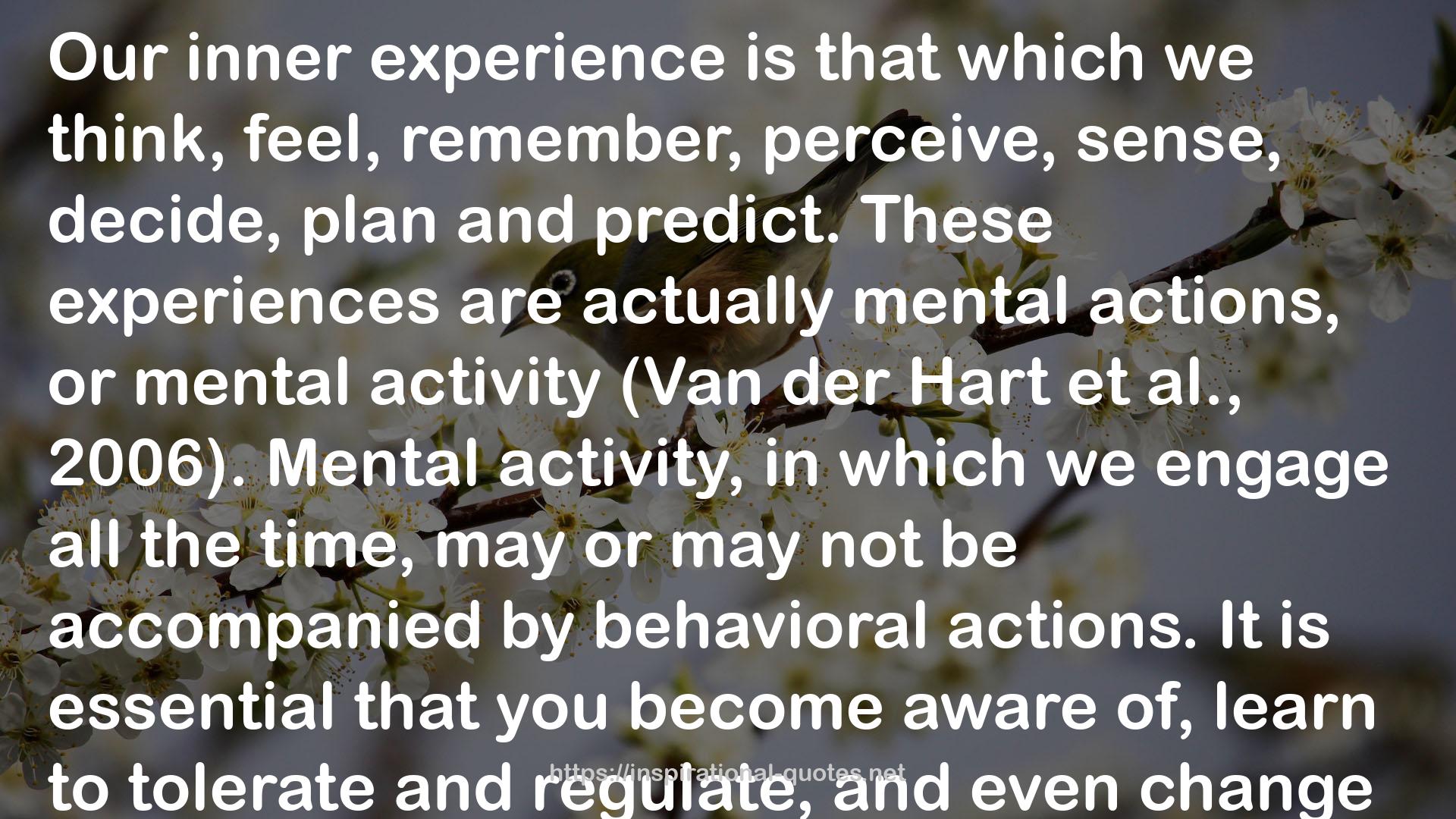" Our inner experience is that which we think, feel, remember, perceive, sense, decide, plan and predict. These experiences are actually mental actions, or mental activity (Van der Hart et al., 2006). Mental activity, in which we engage all the time, may or may not be accompanied by behavioral actions. It is essential that you become aware of, learn to tolerate and regulate, and even change major mental actions that affect your current life, such as negative beliefs, and feelings or reactions to the past the interfere with the present. However, it is impossible to change inner experiences if you are avoiding them because you are afraid, ashamed or disgusted by them. Serious avoidance of you inner experiences is called experiential avoidance (Hayes, Wilson, Gifford, & Follettte, 1996), or the phobia of inner experience (Steele, Van der Hart, & Nijenhuis, 2005; Van der Hart et al., 2006). "
― , Coping with Trauma-Related Dissociation: Skills Training for Patients and Therapists
